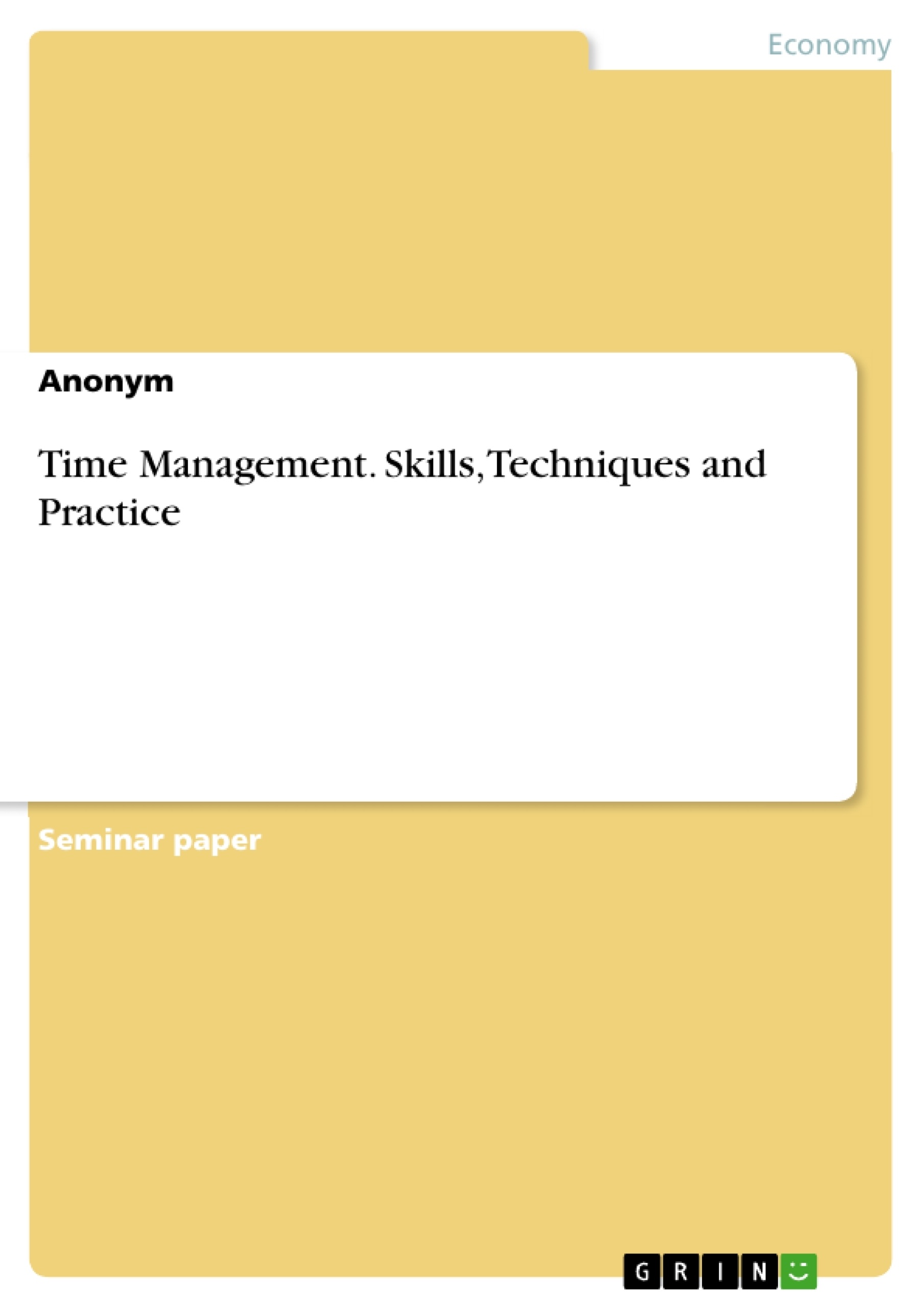Although a day has 24 hours, it seems impossible for many people to perform the number of tasks they are expected to each day. A lot of people in our society are over-worked. They suffer from stress and hectic in ther daily life and the burn out syndrome has become a common condition. According to an article of the focus medicines bargain that 20% – 30% of all working people suffer from burn out syndrome at least once a lifetime. Another statistic shows that in the year 2010 24.05 million out of 64.82 million people felt they did not have enough time.
Inhaltsverzeichnis (Table of Contents)
- INTRODUCTION
- My Current Situation
- What is Time Management?
- Aims of Time Management
- TIME MANAGEMENT SKILLS AND TECHNIQUES
- Work-Life Balance
- Setting Goals, Having a Vision
- The Eisenhower Principle
- Pareto Principle
- Planning a Day / Your Life
- Planning a Week
- Planning a Month and a Year
- TIME MANAGEMENT IN PRACTICE
- My Experience with Time Management
- Critical Acclaim
Zielsetzung und Themenschwerpunkte (Objectives and Key Themes)
This term paper aims to explore the concept of time management and its practical application in both professional and personal life. The paper delves into various time management techniques, including work-life balance, goal setting, the Eisenhower Principle, and the Pareto Principle. It also examines how these techniques can be integrated into daily routines to improve efficiency and reduce stress.
- The importance of work-life balance and its impact on personal well-being.
- The role of goal setting and vision in effective time management.
- The Eisenhower Principle and its method for prioritizing tasks.
- The Pareto Principle and its focus on maximizing outcomes with minimal effort.
- Practical strategies for planning and scheduling daily, weekly, monthly, and yearly activities.
Zusammenfassung der Kapitel (Chapter Summaries)
Introduction: This chapter introduces the concept of time management and its relevance in today's fast-paced society. It highlights the challenges of balancing work and personal life, the importance of efficient time utilization, and the benefits of effective time management.
Time Management Skills and Techniques: This chapter explores key time management principles and techniques. It delves into work-life balance, goal setting, the Eisenhower Principle, and the Pareto Principle. It also provides practical insights on planning daily, weekly, monthly, and yearly schedules.
Time Management in Practice: This chapter presents the author's personal experience with implementing time management techniques in both academic and professional settings. It showcases the author's approach to scheduling, prioritizing, and managing tasks effectively.
Schlüsselwörter (Keywords)
Key terms and concepts explored in this term paper include time management, work-life balance, goal setting, Eisenhower Principle, Pareto Principle, scheduling, prioritization, efficiency, effectiveness, and personal well-being.
Frequently Asked Questions
What is the main objective of time management?
The main objective is to use time more efficiently and effectively to achieve goals, reduce stress, and improve work-life balance.
What is the Eisenhower Principle?
It is a method for prioritizing tasks by categorizing them into four quadrants based on their urgency and importance (Urgent/Important, Not Urgent/Important, etc.).
What does the Pareto Principle mean for daily work?
Also known as the 80/20 rule, it suggests that 80% of results come from 20% of the effort. Time management focuses on identifying and prioritizing that vital 20%.
How can I improve my work-life balance through time management?
By setting clear goals, planning schedules (daily, weekly, monthly), and learning to delegate or say no to unimportant tasks, you create more space for personal life.
Why is goal setting and having a vision important?
Without a clear vision or goals, time management becomes just "being busy." Goals provide the direction needed to decide which tasks are truly worth your time.
- Arbeit zitieren
- Anonym (Autor:in), 2011, Time Management. Skills, Techniques and Practice, München, GRIN Verlag, https://www.grin.com/document/312494



